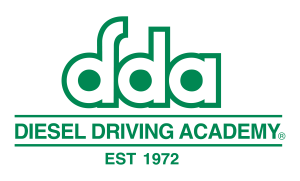The time immediately following discharge is a pivotal time in the life of a military servicemember. The skills he or she has already learned are in place, and making the decision to enter the job market, seek schooling, or both will shape the next several years of their life.
Military veterans often face a tough road once their time in the service is completed. Many are discharged and immediately encounter difficulty finding a new career path or job. This is particularly troublesome given the service they have provided to their country that they have so much difficulty.
Of course, much of that problem stems from employers not knowing the value of the work soldiers, sailors and Marines performed on a daily basis. In addition to the soft skills—things like discipline leadership, and learn valuable trade skills, like accounting, mechanics, and construction.
For service members who did spend time operating large vehicles similar to those that run commercially on American roadways, you have a potential built-in career track that you shouldn’t discount. For many ex-military personnel, particularly those who worked in motor pools or drove military vehicles, a career in the trucking industry may be a good option to explore.
Driving military vehicles, particularly the large trucks and transports that are commonly operated among the armed forces, afford many discharged servicemembers a viable career path. Many trucking companies feature veteran training programs in an effort to attract those with a military background, and the Federal Motor Carrier Safety Administration (FMCSA), recognizing the potential importance of skilled drivers, even developed and implemented a military Skills Test Waiver, where qualified military personnel can test out of the time and expense of applying for a commercial driver’s license.
The Military Skills Test Waiver form addresses all of the issues of this regulation, including which violations will trigger a denial of the waiver, identifying the vehicles the service member was licensed to drive, and an endorsement by the service member’s commanding officer attesting to a safe driving record.
In addition, many trucking companies offer veterans’ programs. For instance, TMC Transportation has pledged to hire 500 vets by 2016 through the “Hiring Our Heroes” program, Schneider and Swift Transportation are among many other companies either claiming to be “military friendly” or have programs of some sort.
The point is this: if you are a veteran coming out of your military service, you have career options. Military skills can translate easily to job skills whether you’re an infantryman, a military policeman, or in finance. For transport drivers, making the transition to trucking can be as natural as your morning PT or saluting a superior.
